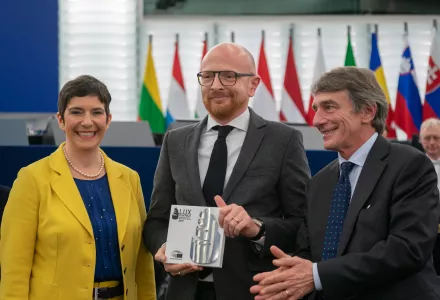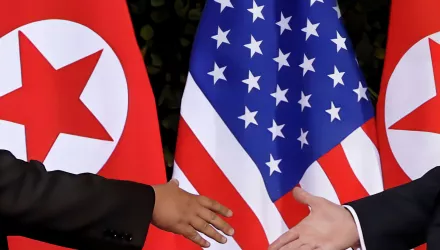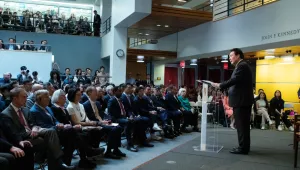
In October 2020, a parade celebrating the 75th anniversary of the founding of the Korean Workers Party showcased a range of new weapons systems, including a new large intercontinental ballistic missile. The same weekend saw the release of a fascinating documentary film directed by provocative Danish filmmaker Mads Brügger, entitled The Mole: Undercover in North Korea. The film consists of footage—much of it filmed undercover—that was shot over a period of 10 years. It tells the story of a retired Danish chef’s infiltration of the Korean Friendship Association (KFA), an international organization that seeks to promote the ideology, history, and culture of the Democratic People’s Republic of Korea (DPRK) and defend the country from its critics. The story culminates in the exploration of plans for a series of sanctions-busting deals: constructing an underground arms factory on a Ugandan island, shipping oil to North Korea, and supplying arms to unspecified customers of Pyongyang through a private arms dealer. This review essay seeks to contextualize the film’s contents, consider the insights it offers into North Korea’s arms dealing, and examine a number of questions that arise.
Salisbury, Daniel . “Of Moles and Missiles: Anatomy of a North Korean Arms Deal?.” Nonproliferation Review, April 8, 2022
The full text of this publication is available via Nonproliferation Review.




